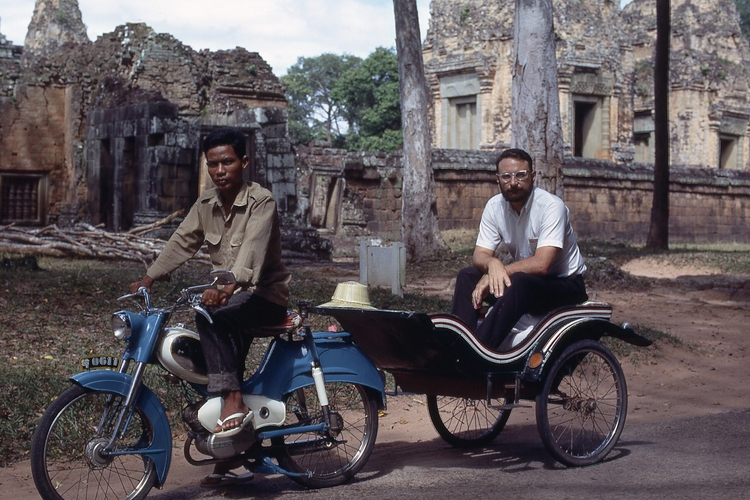Dr. Alfred Hofmann ‘53 is no stranger to supporting institutions and programs that have a direct impact on people in need. He came to Blackburn College with no money, a first-generation college student with few material possessions. Today, he seeks to pay Blackburn back for all that it gave to him.
Alfred’s parents immigrated to the U.S. from Germany and settled on the north side of Chicago. There was no tradition of college in the family, but Alfred’s father asked him, “Do you want to go to college?” Alfred knew that the cost of higher education was out of reach for his family; he decided he must first work and set money aside for college.
Alfred’s first job only confirmed for him that he needed to obtain a college degree to get ahead. He watched as a newly hired employee was placed directly into a highly desired sales position—without progressing through the ranks at the company as was the normal practice.
“I was told that the employee was given the position and salary because he had a college degree!” says Alfred.
It was time to seek out advice, and Alfred met with his former Steinmetz High School counselor who told Alfred that he had two options: 1) He could go to the University of Illinois at a cost of $125/semester plus room and board, or 2) He could go to Blackburn College where students worked on campus to reduce their costs.
Although Alfred applied and was accepted for Blackburn’s spring semester, he had to tell the Admissions Director Dr. Marlowe Slater ‘37 that even with a reduced cost, he still could not come up with the money to attend. Dr. Slater was determined that Alfred deserved a chance, sending him a telegram telling him to come to Carlinville anyway—not to worry about the money. Financing would be arranged.
Alfred arrived at the Carlinville train station on the GM&O Railroad with only a trunk of clothing that required two people to carry. He walked across town to the campus, leaving the trunk behind until he could figure out how to get it later.
“I was assigned to a room in Dawes Gym—near the balcony and offices on the south end—with four other students. One of the fellas offered to help me get my trunk, and on the way to the train station, we borrowed a little red wagon from a front yard on College Avenue (with the owner’s permission!) to haul the trunk to the campus.”
The Work Plan contributed to Alfred’s sense of belonging to a community at Blackburn, and he made many more friends because of it. One of those friends would be his future wife, Kay Hattoon ’55. The impact of his experience at Blackburn was life changing; he attributes his work ethic, sense of time management, self-discipline, and value for community to his time at Blackburn.
Alfred left Blackburn before graduating to take a chemistry course at the University of Illinois. Unexpectedly, he had to drop the class, was drafted, and served in the U.S. Army as a medic. He later applied and was accepted into medical school at Northwestern University where he was finally awarded a B.S. after he completed his first year before receiving his M.D. He went on to a successful career in anesthesiology.
PAYING IT BACK…
Dr. Hofmann’s ethic is to pay it back … financially and as a volunteer.
He has strong memories of volunteer work he did during the late 1960s. He served on a volunteer plastic surgical team in Vietnam for two three-month periods to treat children who were victims of napalm bombings. The treatment effort was inspired by work done by plastic surgeons on children who had been badly disfigured by the atomic bomb on Hiroshima.
Financially, Alfred has focused a portion of his giving on his alma mater. Alfred and Kay both strongly desired to give back to Blackburn College. When they felt they could afford to do so, they began making an annual gift to the College, which became a habit. Alfred has given to Blackburn each year for more than 40 years—the longest record of consecutive giving of any Blackburn donors.
“Blackburn was generous with its student financial aid; I couldn’t have attended College otherwise. It is important that I do what I can to help ensure Blackburn assists students with financial need. Blackburn’s mission seems to focus on educating young folks with limited means—like me. Therefore, I give annually. And, I plan to make Blackburn a beneficiary of a portion of my estate, so my support continues after I’m gone.”
Blackburn College students are direct beneficiaries of Dr. Hofmann’s pay-it-back ethic. Alumni donors report that Blackburn was the place that opened a door for them, giving them a head start for their careers, families, and community involvement. Paying it back means that today’s disadvantaged students can also pursue their dreams and aspirations for the future.
